The Health Benefits of Gardening: 5 Reasons to Grow Food
The health benefits of gardening are very real. In a fast-paced, digitally driven world, it is easy to feel disconnected from nature, our food, and even ourselves.
Gardening offers a powerful way to bridge that gap. More than just a productive hobby, growing your food supports deep physical, mental, and emotional well-being. In this guide, we’ll explore 5 reasons why you should grow food and the many health benefits of gardening, from the soil beneath your feet to the food on your plate.
Homegrown Food Is More Nutritious
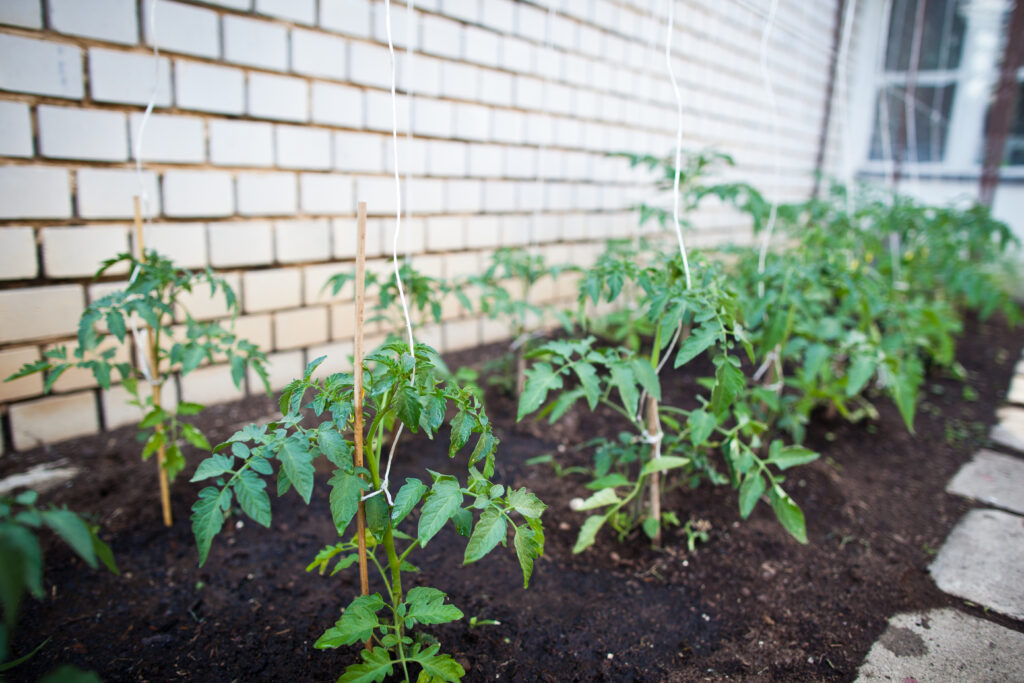
When you grow your food, you harvest it at peak ripeness, when nutrients are most concentrated. Unlike store-bought produce, which is often picked early and shipped thousands of miles, homegrown fruits and vegetables retain more vitamins, minerals, and antioxidants.
For example, leafy greens like kale and spinach lose a significant portion of their vitamin C within 24 hours of harvest. When you harvest from your backyard or windowsill, you get the most nutrient-dense version of that plant. Plus, backyard gardeners often choose to grow heirloom and open-pollinated varieties, and they tend to be richer in phytonutrients and flavor than their commercial counterparts, which are often bred for shelf life over nutrition.
Homegrown food is also free from the chemical preservatives and gassing agents used to extend the shelf life of grocery store produce. Many supermarket vegetables are treated with substances to preserve appearance during transport, which can degrade the nutrient profile.
In contrast, vegetables harvested straight from the garden have no time to lose nutrients and don’t require chemical treatment. Additionally, growing your food allows you to select varieties based on nutritional density rather than shipping durability.
For example, home gardeners can grow intensely pigmented carrots, purple cauliflower, or high-lycopene tomatoes—all containing higher concentrations of health-promoting compounds. This means you’re not only eating fresher, you’re eating smarter.
Click here for some of our favorite and affordable Organic Heirloom Seeds.
You Control the Soil, Fertilizers, and Pesticides
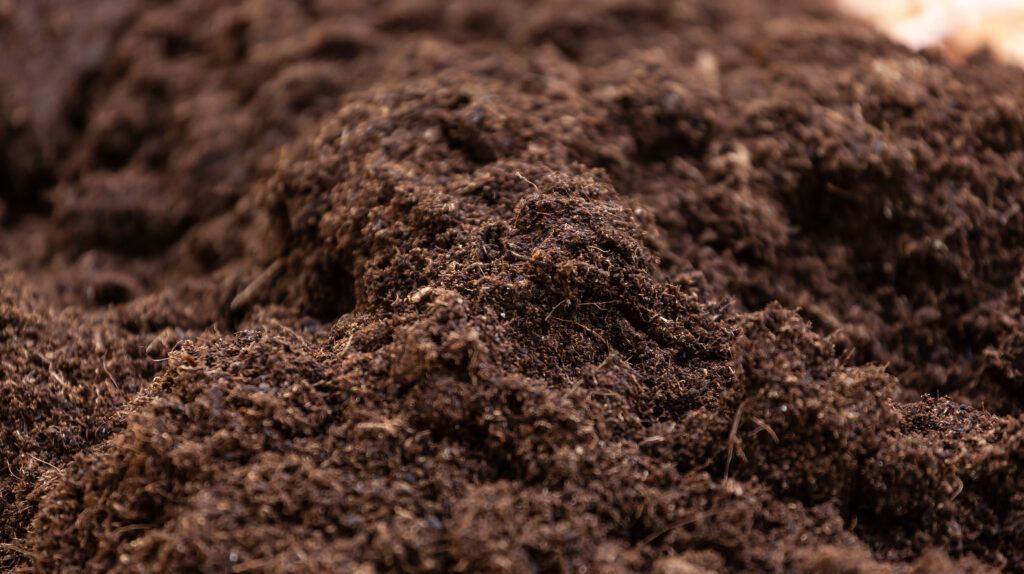
Gardening gives you complete control over what goes into your food—and what doesn’t. Commercial produce is often grown in depleted soils with synthetic fertilizers and treated with pesticides and preservatives. When you garden at home, you decide how to build and nourish your soil, whether through composting, worm castings, or natural amendments like sea minerals and rock dust.
You can also avoid harmful chemical pesticides using integrated pest management, companion planting, and natural deterrents like neem oil or diatomaceous earth. This means your food is cleaner, safer, and grown with care, exactly how nature intended.
One of the most powerful tools is composting. By turning kitchen scraps, coffee grounds, eggshells, and garden waste into nutrient-rich compost, you create a closed-loop system that feeds your soil naturally. Compost improves soil structure, moisture retention, and microbial activity, helping plants thrive without synthetic inputs.
In addition to compost, choosing organic fertilizers—such as fish emulsion, kelp meal, or feather meal—adds essential nutrients without harming soil life or groundwater. Unlike conventional fertilizers, which can cause chemical buildup and nutrient imbalances, organic options work with the ecosystem rather than against it. This holistic approach not only yields healthier crops but also builds soil fertility year after year.
By managing your own growing environment, you avoid hidden chemicals and cultivate food that nourishes your body from the ground up.
Gardening Is a Form of Exercise
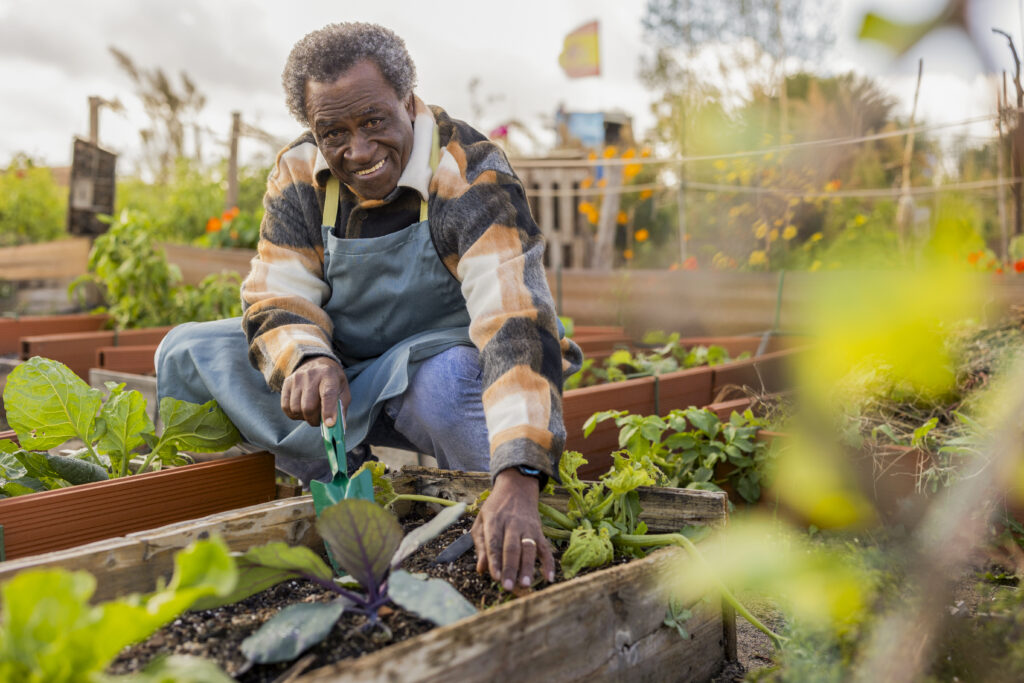
Tending to a garden is deceptively physical. Digging, lifting, squatting, planting, weeding, and watering can burn calories and build strength, flexibility, and endurance. According to the CDC, light gardening and yard work can burn up to 330 calories per hour, comparable to a brisk walk or light cardio workout. That’s impressive!
Beyond calories, the health benefits of gardening can improve balance and coordination, especially for older adults. The varied movements in garden tasks also support joint mobility and reduce the sedentary time so common in modern life.
Gardening also engages core muscles and improves grip strength, which is vital for everyday function and injury prevention. Tasks like turning compost, carrying watering cans, or spreading mulch require full-body involvement, making it a holistic form of functional fitness. Because it’s a form of movement that connects you with purpose and nature, people often find it easier to stay consistent than with traditional exercise routines. It’s exercise you look forward to—and one that yields tangible, edible rewards.
Mental Health Benefits: Soil, Sunlight, and Serenity
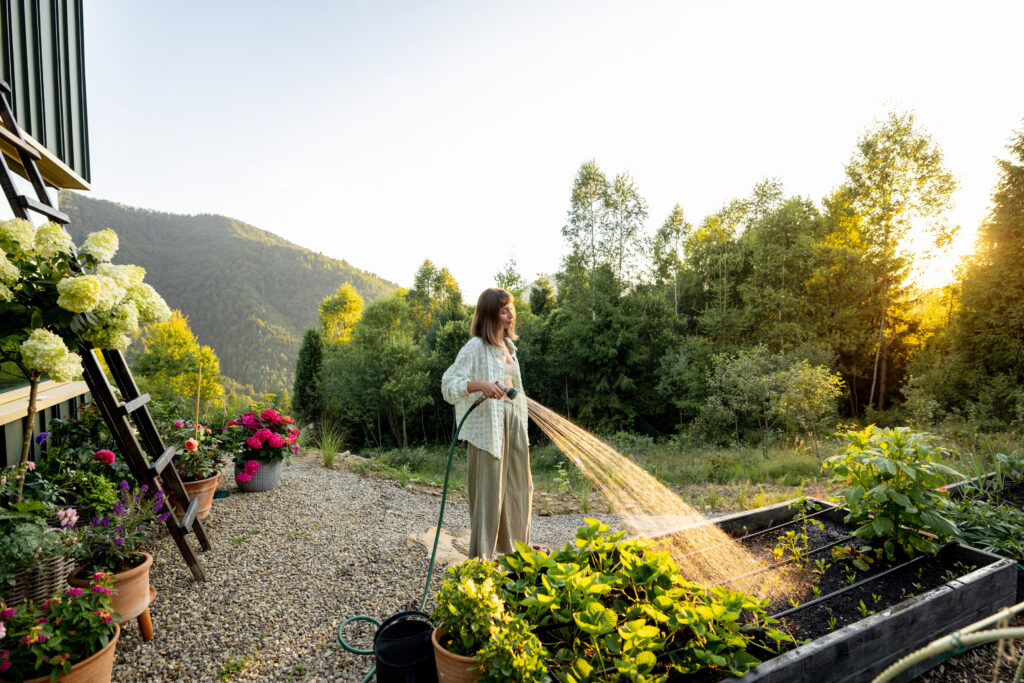
Spending time in nature has been scientifically shown to reduce stress, anxiety, and depression. Gardening, in particular, encourages mindfulness and presence—you can’t scroll your phone and sow seeds simultaneously.
Sunlight
Natural sunlight boosts vitamin D levels, supporting bone health, immune function, and mood regulation. Low levels of vitamin D have been linked to depression and fatigue, especially during winter months.
Soil
Contact with healthy soil exposes you to beneficial microbes like Mycobacterium vaccae, which can trigger serotonin production and reduce anxiety symptoms. That “grounded” feeling you get with your hands in the soil? It’s real, both chemically and energetically.
Mindfulness
Gardening provides a gentle rhythm to your day and encourages focus and patience. Watching a seed grow into a plant is a humbling and healing process that fosters gratitude, and two states are known to boost overall mental well-being.
Gardening also helps regulate the nervous system by shifting your brain into a more relaxed, parasympathetic state. The repetitive, soothing motions of weeding, watering, or harvesting can feel meditative, helping to calm the mind and reduce cortisol levels.
For many people, tending to plants becomes a form of daily therapy—a grounding ritual that brings structure, calm, and clarity. This emotional balance extends beyond the garden and into everyday life, building resilience against modern stressors and cultivating a greater sense of emotional stability.
Gardening can create Self-Sufficiency and Peace of Mind
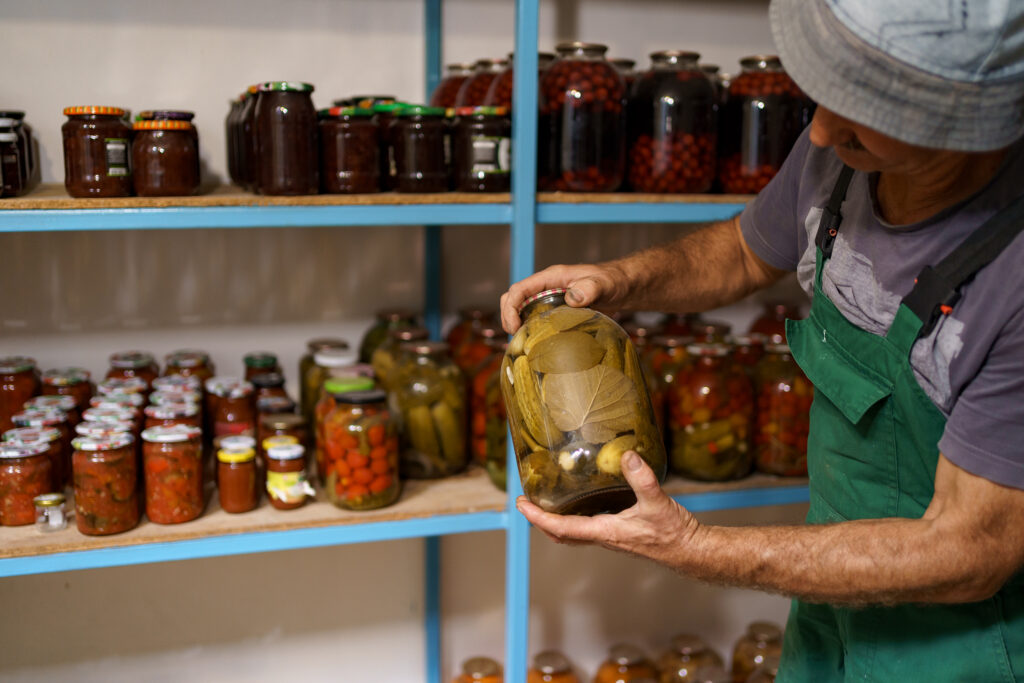
A profound sense of peace comes from knowing you can provide for yourself and your family. In uncertain times, food security becomes a source of empowerment. Even a small container garden on a balcony or porch can yield fresh herbs and vegetables, offering independence from unstable supply chains and skyrocketing food costs.
Gardening reconnects you to nature’s cycles, gives you a sense of purpose, and creates a legacy of resilience. It’s not just about growing food; it’s about reclaiming a relationship with the land and with yourself.
The ability to grow your own food puts power back into your hands. When you’re less reliant on grocery stores and industrial supply chains, you can make healthier choices and confidently respond to unexpected challenges.
Knowing that you can nourish your household with what you grow builds physical independence and emotional strength. It instills a mindset of capability and resourcefulness—key elements of long-term well-being. You invest in a more secure, intentional future with every seed you plant.
Gardening is more than a hobby—it’s a healing, empowering, and transformative practice that reconnects us to our food, environment, and ourselves. From boosting nutrition and building physical strength to calming the mind and cultivating self-reliance, the garden offers lessons and benefits that extend well beyond the harvest. As you plant seeds in the soil, you also plant seeds of resilience, health, and harmony in your life
